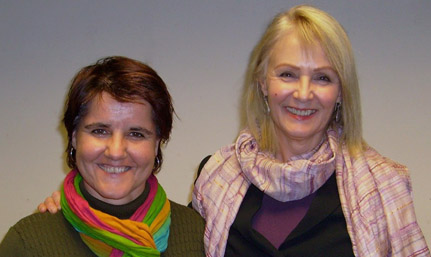Latest News Archive
Please select Category, Year, and then Month to display items

The University of the Free State (UFS) wishes to confirm that the following financial concessions have been made to enable students to register for the 2024 academic year:
- Students with confirmed NSFAS funding:
- Students with a confirmed National Student Financial Aid Scheme (NSFAS) funding allocation for 2024 with a debt of R20 000 and less may register fully without making any payments.
- First-time entering students (FTENS) with a confirmed NSFAS funding allocation for 2024 may register fully without any payments.
- Students with a confirmed NSFAS funding allocation for 2024 with a debt of R30 000 and less may register provisionally and pay the required fees* for provisional registration.
- South African self-paying (NON-NSFAS) students:
- SA students with a debt of up to R500 may register fully without making any payments.
- SA students with a debt of up to R30 000 may register provisionally and pay the required fees* for provisional registration.
- FTENS not on UFS funded list:
- Students who are not on the funded list but report that they have been approved on their portal must contact our
 Financial Aid Offices urgently so that the university can escalate to NSFAS.
Financial Aid Offices urgently so that the university can escalate to NSFAS.
The university will have continuous engagement with the National Financial Aid Scheme (NSFAS) to resolve outstanding matters. The university’s Financial Working Group (FWG) will meet regularly to determine how it can best assist students taking into consideration the financial constraints of the university.
Senior professor launches new book in London
2013-05-13
|

|
Alejandra Boni (left) is an associate professor at the Universidad Politécnica de Valencia in Spain and Melanie Walker is a Senior Research Professor and Director of the Centre for Higher Education and Capabilities Research (CHECaR) at UFS.
13 May 2013 |
Melanie Walker and Alejandra Boni (Eds.) were hosted by the Institute of Education at the University of London, in April to launch the publication of their new book, titled: Human Development and Capabilities: Re-imagining the university of the twenty-first century (Routlege).
In the face of reductionist and “thin” human capital approaches to higher education globally, the book imaginatively applies a theoretical framework to universities as institutions and social practices from human development and the capability approach. The book attempts to show how universities might advance equalities rather than necessarily widen them, and how they can contribute to a sustainable and democratic society.
Picking through the capability approach for human development, in relation to universities, this book highlights and explores three main ideas:
- theoretical insights to advance thinking about human development and higher education
- policy implications for the responsibilities and potential contributions of universities in a period of significant global change and
- operationalising a New Imaginary
The book is available for purchase online and will be added to the library collection soon.